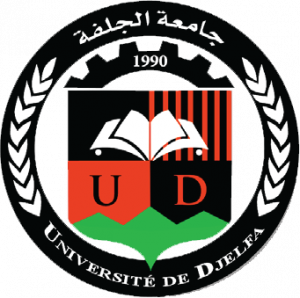University learning is very different from high school. It requires more independence, critical thinking, and proactive organization. Here are the key methods to discover and master:
1. Foundational Methods:
Time Management:
Use a Planner/Scheduler: Record all deadlines, exams, and lab sessions.
Create a Weekly Schedule: Block out time for lectures, study sessions, assignments, and personal time. Treat studying like a job with fixed hours.
Break Down Tasks: Divide large projects (like lab reports) into smaller, manageable steps.
Active Learning in Class:
Take Effective Notes: Don't just transcribe. Use methods like the Cornell Note-Taking System to summarize key points in your own words.
Review and Revise: Go over your notes within 24 hours of the lecture to move information from short-term to long-term memory.
Independent Study:
Find Your Space: Identify a quiet, dedicated study space free from distractions.
Use Active Recall: Instead of passively re-reading, test yourself on the material using flashcards or practice problems.
Spaced Repetition: Review material periodically over time instead of cramming.
2. Methods Specific to Your Field (Science & Lab Work):
Pre-Lab Preparation: Always read the lab manual beforehand. Understand the objectives, theory, and procedures. This makes the practical session much more productive.
Lab Report Writing: Learn the standard structure (Abstract, Introduction, Methods, Results, Discussion, Conclusion). This is a critical skill for your "Travaux Pratiques de la Mécanique du Point Matériel."
Problem-Solving Practice: For subjects like mechanics, practice is key. Work on as many problems as you can to understand the application of theoretical concepts.
3. Utilizing University Resources:
Professors and TAs: Don't hesitate to ask questions during their office hours. They are there to help.
University Libraries and Databases: Learn how to find scientific papers, books, and other academic resources.
Form Study Groups: Collaborating with peers can help you understand difficult concepts and see problems from different perspectives.
Would you like more detailed advice on any of these specific methods, for example, how to write a lab report or how to use the Cornell Note-Taking System? I'm here to help you succeed
This module trains Master’s students in scientific research methodology. It covers bibliographic research, equation editors, and key mathematical resources like AMS, MathSciNet, and EMIS. Students also learn the MSC classification, thesis preparation, and the process of writing and submitting mathematical articles. Assessment is through a final exam.
Ce cours propose une introduction complète aux principales méthodes d’analyse statistique des données, allant de l’analyse descriptive à des techniques plus avancées de traitement multivarié:
- Statistiques descriptives univariées et bivariées.
- Relations entre variables (corrélation, régression).
- Réduction de dimension (ACP, analyse canonique).
- Analyse de données qualitatives (AC, ACM).
- Méthodes de classification (CAH, k-means).
Course Title: Analysis 2📘
: Target Audience🎯
.First-year undergraduate students in mathematics
Course Description🧾
Analysis 2 expands students’ understanding of integral calculus and differential equations. The course begins with techniques for solving 🧮 indefinite integrals, such as substitution, integration by parts, and partial fractions. It then introduces 📐 definite integrals, focusing on their properties and applications in computing areas, volumes, and average values of functions. The final sections are devoted to 📊 first-order and ⚙️ second-order differential equations with constant coefficients, where students learn to solve both homogeneous and non-homogeneous cases and apply these tools to real-world problems in science and engineering
Learning Objectives🎓
:By the end of this course, students will be able to
.Apply integration techniques to solve complex indefinite and definite integrals✅
.Analyze first- and second-order differential equations to determine appropriate solving methods🔍
.Solve applied problems involving areas, volumes, and differential models using calculus tools🧩
The objective of this course is to enhance the professional competency of prospective chemistry teachers in English. The curriculum integrates English language skills, encompassing reading, writing, speaking, and listening, with chemistry topics. The focus is on advancing students' factual, conceptual, procedural, and metacognitive knowledge in chemistry, covering subjects such as water, salt, acids, and bases. Additionally, the course aims to cultivate personal and social competencies, emphasizing reverence for a higher power, respect for human values rooted in religion, morals, and etiquette. Active participation in skill development and task completion is expected from students throughout the course to augment their proficiency and understanding.
The course comprises four units designed for a semester-long study, with a primary emphasis on teaching vocabulary and terminology using authentic texts relevant to each unit's theme. Students are encouraged to grasp the meaning of new words within their context. Grammar instruction is also included, utilizing examples extracted directly from the texts to illustrate and elucidate grammatical rules. Advanced students may utilize the grammatical exercises provided for review, while beginners may require supplementary materials for further support.
Dans le but de renforcer les aspects de la gestion et de la sécurité des laboratoires chimiques, ce document a été spécialement conçu pour les étudiants en Master de Chimie Organique et Appliquée.
Ce document vise à fournir une aide et des orientations aux étudiants pour comprendre et appliquer les concepts de gestion de laboratoire et de sécurité chimique dans le contexte de leurs études et de leurs recherches.


